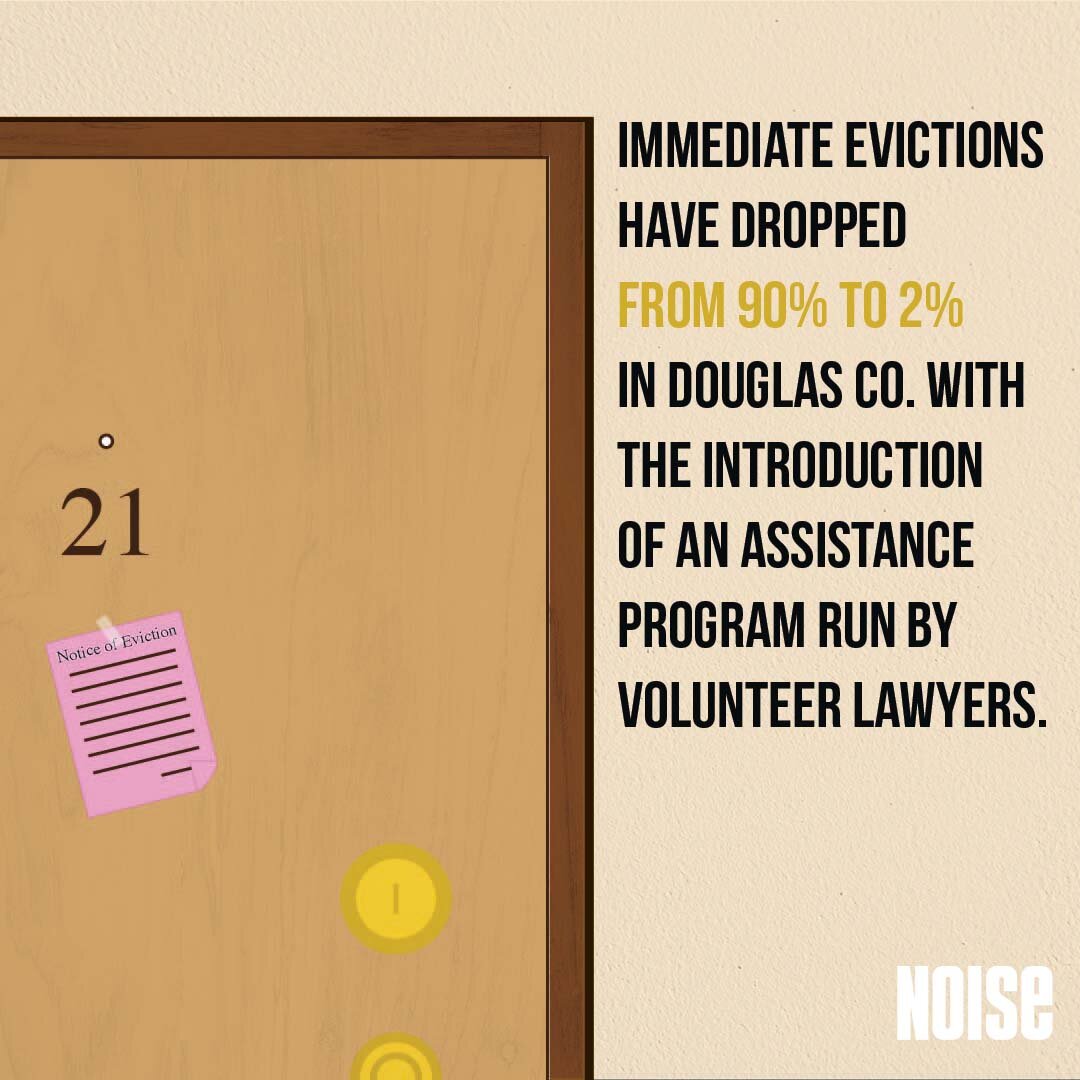Volunteer Lawyers Help Tenants Avoid Eviction After Moratorium Ends
By Anton Johnson
Time really is money in courtroom 20 at the Omaha Douglas Civic Center. Small claims court starts at 9 a.m. and can end as soon as 9:30 if the judge moves through cases quickly. In an eviction case, that’s bad news for a tenant representing themselves against a landlord with an attorney.
“Brutally efficient,” Erin Feichtinger of Together Omaha called it.
That’s where the Tenant Assistance Program (TAP) steps in to buy tenants time. In collaboration with over 20 different organizations, volunteer lawyers provide free legal representation for residents facing eviction on the day of their court case. Volunteers wait in the lobby of the civic center four days a week, hoping each name on the list shows up. They approach people after they walk through the metal detectors, asking if they’re here for an eviction case. If they are, the lawyer looks through their binder for whatever information they have on that case. Then, they figure out the tenant’s options.
Time really is money
in courtroom 20 at the Omaha Douglas Civic Center. Small claims court starts at 9 a.m. and can end as soon as 9:30 if the judge moves through cases quickly. In an eviction case, that’s bad news for a tenant representing themselves against a landlord with an attorney.
Ryan Sullivan, Director of the UNL College of Law’s Civic Clinic, started Lancaster County TAP in April 2020. After a few weeks, the Nebraska Bar Association’s Volunteer Lawyers Project (VLP) got involved. The VLP helps recruit lawyers and coordinate the program. VLP director Laurie Heer Dale said that the TAP has made a huge difference since it was finally brought to Douglas County in August.
“They saw what was going on in Lancaster County, they saw it was incredibly successful,” Heer Dale said. “And they approached us and asked what we need to do to make this a project we can replicate in Douglas County.”
The CDC eviction moratorium expired in August, just weeks after the TAP got started in Douglas County. Evictions in Nebraska dropped in 2020 because of the moratoriums, and now eviction filings are rising back to pre-pandemic levels. But eviction filings don’t always mean an eviction judgment.
Heer Dale said that before the TAP, around 90% of cases ended with a judgment for an immediate eviction. Now, she said that rate is as low as 2%.
The tenant still has to move out in about half of those cases, but they work out a deal with the landlord, or a “stipulated agreement.” The agreement gives the tenant more time to find a new home and avoid having an eviction on their record. In other cases, they get more time to make their rent payments. The TAP also helps connect tenants to emergency rental assistance, distributed for the city by Metro Area Continuum of Care for the Homeless (MACCH).
The TAP has also partnered with Legal Aid of Nebraska, including on outreach. Legal Aid housing attorney Caitlin Cedfeldt said they compile a list of each week’s cases and cross list the tenant’s addresses. Legal Aid can’t solicit services, but they can mail information reminding the tenant to appear in court. Cedfeldt said some tenants don’t know they need to show up, and others believe they’ll get evicted either way. But Legal Aid and the TAP have made it clear that showing up is more than half the battle.
Volunteer lawyer Dave Pantos said it’s heartbreaking to see the list of people who don’t show up. In the past, about a third of tenants appeared in court. Now, that number is closer to half. “Unless they show up, they will get evicted,” Pantos said.
Residents need to qualify as low-income to get help from Legal Aid directly, but the TAP is free for anyone. Heer Dale said that anybody facing an eviction case should reach out to Legal Aid first, but the TAP will be there for anyone needing help in court.












